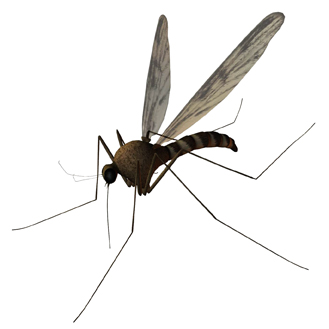West Nile Virus
Posted on July 1, 2013 by bob in In Every Life
“Individuals over age 60…are at increased risk for more serious illness.”
By mid-June this year, eleven states have reported cases West Nile Virus. Four states reported cases in humans: California, Texas, Mississippi, Tennessee. Two of these states border Alabama.
In 1937, West Nile virus (WNV) was identified in Africa, the Middle East, and West Asia. In the Western Hemisphere, the first human and animal disease cases were reported in 1999, especially in an outbreak in New York City. By 2003, reports of WNV had spread to 46 states. It is not contagious from person to person in casual contact; people or animals are infected through bites from infected mosquitoes which have acquired the infection from feeding on birds that contain high levels of WNV.
An infection can occur without symptoms, or may include symptoms such as fever, head or body aches, vomiting, diarrhea, enlarged lymph glands or skin rash. Fatigue and weakness may persist for several weeks or months.
However, the illness will become more severe in approximately 1% of infected people, potentially developing into meningitis or encephalitis with symptoms such as high fever, headache, neck stiffness, altered thinking, weakness, paralysis, tremors or convulsions. Individuals who develop severe illness require supportive nursing and medical care in a hospital as soon as symptoms are identified. Individuals over age 60, and those who have conditions such as cancer, diabetes, high blood pressure, kidney disease, or have organ transplants are at increased risk for more serious illness. Death is estimated in less than 1 out of 1000 cases.
There is no vaccination or antiviral treatment available to prevent WNV. Prevention includes avoiding contact with mosquitoes by covering skin with clothing, using insect repellant, and avoiding being outdoors during the early morning and evening. Eliminating areas of standing water in which mosquitoes breed, supporting community mosquito extermination efforts, and maintaining screened doors and windows are additional efforts to reduce contact with mosquitoes. A dead bird or animal should always be handled with a protective barrier such as gloves or double plastic bags. Dead birds or animals should be reported to the Alabama Department of Public Health for testing for presence of WNV in the area. Meat from birds and animals should always be fully cooked.
Although summer is the time of year many enjoy the outdoors, awareness of potential risks, symptoms, and strategies to avoid exposure to WNV can increase personal and family safety. Have a very safe and enjoyable rest of the summer!
Track reports of infections among mosquitoes, dead birds, and other animals:
http://diseasemaps.usgs.gov/index.html
Information about specific insect repellants can be found at the national pesticide information center.
— http://npic.orst.edu/index.html
— http://wwwl.cdc.gov/westnile/preventionindex.html
— http://epa.gov/pesticides/insect/safe.htm
Arlene H. Morris, EdD, RN, CNE is Professor of Nursing, Auburn Montgomery School of Nursing. Reach her at amorris@aum.edu.










